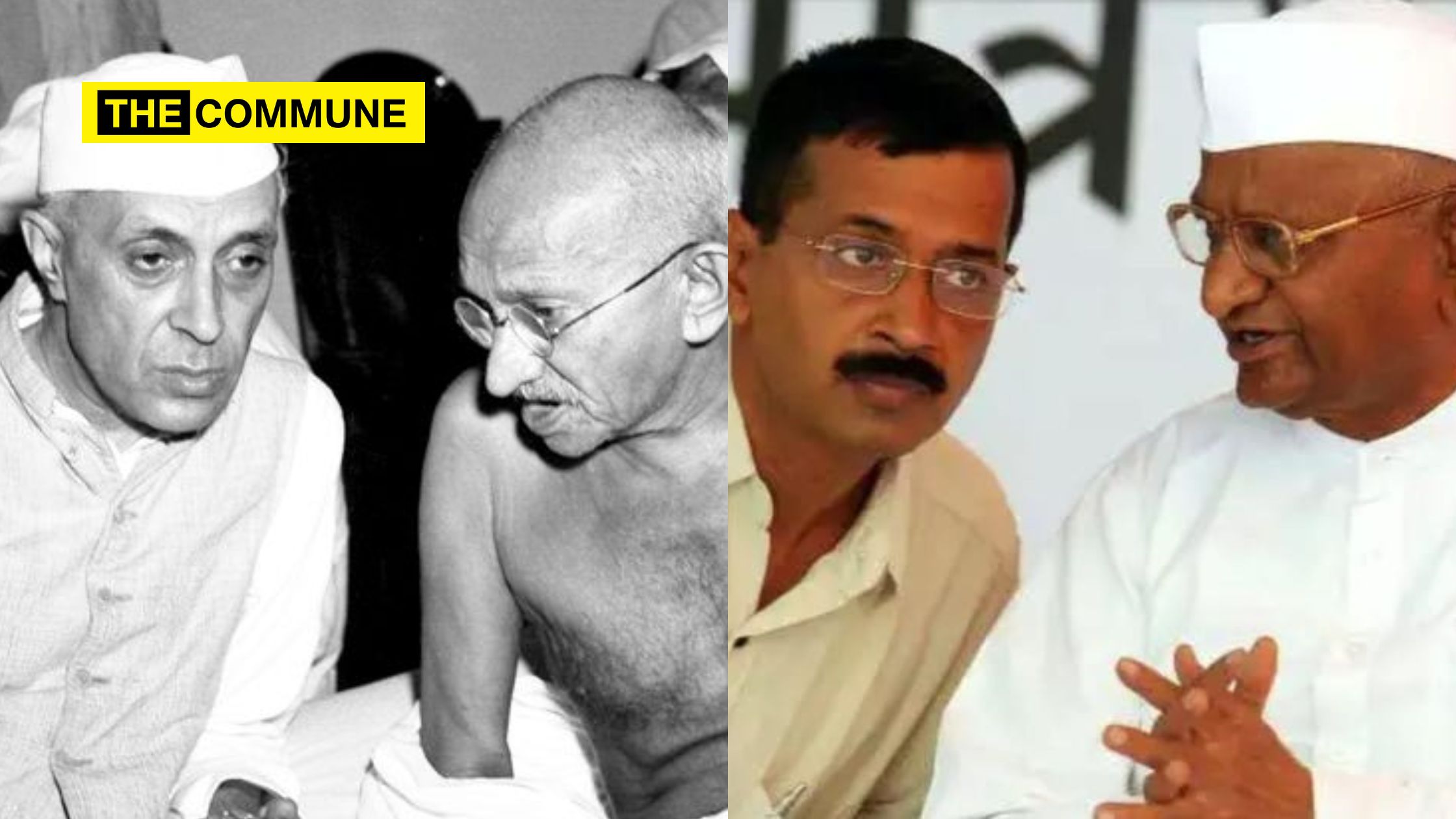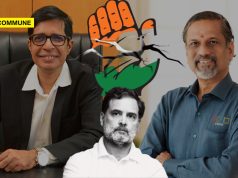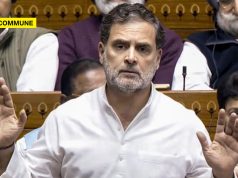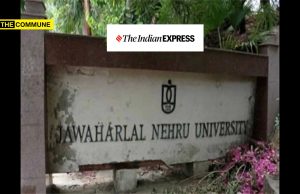
Had Mahatma Gandhi lived long enough, the differences between the well-meaning Gandhi and the politically motivated Nehru, would most likely have spilt over into the streets and into the pages of national and international media.
Mr. M.K Gandhi’s utopian ideas and lack of pragmatism was made up for, by his humility and sincere well-intentioned wish to see a more egalitarian India and a pluralistic one. The collateral damage to his selfless but obstinate, impractical idea of a pluralistic India, was inflicted on the large masses of the Hindus, whose deep rooted, cultural reverence for spiritually-inclined men and women, allowed them to be emotionally exploited. Gandhi used his privileged, western education to re-educate himself in the ancient Indian social sciences and philosophy. He sacrificed his career, material comforts and his family for the larger idea of an India (however impractical) that he believed in. Gandhi preached a fusion of Indic spiritual tradition within a modern, egalitarian pluralistic, social and economic construct .
Jawaharlal Nehru’s idea of a post independence India, lacked Gandhi’s originality and clarity . Nehru’s idea of India was one acquired and developed over a period of time, based on a tapestry of ideas from the taller leaders of the pre-Independence Congress party. He made up for his lack of good leadership, lack of knowledge on several matters, a lack of deeper understanding of the Indian masses and lack of collaboration with the other leaders, with a strong, consistent and crafty, outwardly endorsement of the well-meaning Gandhi and his uniquely Indian sensibilities .
Nehru’s alignments with the factions present within the Congress party, betrayed his ego-propelled, self centered personal goals and budding levels of border line narcissism. Unlike Gandhi, he nurtured covert political ambitions and utilized his incomplete Western education to promote Western social , economic and philosophical theories. His fascination of Western ideology in all spheres of life and rejection of traditional Indic treatises on the social, physical and philosophical sciences is well known . In fact, his disdain for most things native and Hindu in particular, was documented before, as well as after India’s independence.
It would be controversial to mention it but I do wonder sometimes, if Gandhi’s early demise ended up being an advantage for the masses he sacrificed and fought for or for the handful of privileged men and women he worked with, towards the common cause of Indian Independence. If official and unofficial documented evidence is to be considered, it proved to be an advantage for the privileged Nehru and his self centered, Western-centric, sycophantic friends.
A power-wielding few, exercising complete and unquestioned authority over the needs, rights, sentiments of a new nation. A small, powerful group , promoting their own self interests, with nobody to question their intentions and behavior. Had Gandhi lived to see the many prejudiced, unparliamentary actions of Nehru and his coterie, he may have protested, yet invariably disappeared into obscurity, because politics and wily politicians have always ruled over the sacrifices of simple men and women .
Gandhi’s idea of Bharat’s economic freedom, social equality and prosperity, firmly rooted in the culture and spiritual traditions of the country, differed vastly from Nehru’s unabashed westernized views of the nation’s future, based almost entirely on western ideals, at the the expense of a collective Indic wisdom. Nehru’s disagreements with Gandhi numbered almost as many, as the agreements he had with him. There was even some debate around the specific nature, role, use and extent of non-violence in the freedom struggle, although by and large, there was a significant amount of agreement on the subject, between the two.
The two men were differently oriented with their personal lives and goals as well. Gandhi idealizing and striving towards a life, less dependent on material comforts, sensual pleasures and more inclined towards the teachings of the Hindu spiritual texts. Nehru, eager to abandon and ready to erase any traces of his cultural heritage, the spiritual traditions of his ancestors, his homeland’s Hindu contribution and history in favor of a disproportionately anglicized, Christian and Islamic influenced view of the world, along with a dose of his specific brand of socialism.
Predictably, the two men’s families fared differently too, in post Independence India. While Gandhi and his family opted not to take the political center-stage and did not mind fading into the annals of a worthy historical sacrifice, the Nehru clan did exceeding well for themselves in politics, administration and investments, at the cost of Indian democracy, Indian territorial security and Indian domestic as well as foreign policies.
Nehru and his clan established for themselves a neo, de facto, modern day monarchy of sorts, in which their authority reigned supreme, behind a veiled curtain of name-sake democracy. The well-meaning Gandhi could not have imagined the near-total dominance of the crafty Nehru and his progeny, in Indian politics! The two men were indeed, different!
In contrast to their differences of opinion on several matters, the biggest agreement shared by the two men, probably their strongest link, in the turbulent waters of pre-Independence politics, at the time of Independence and after India’s Independence, was a consistent tendency in both men, to be unusually concerned with the welfare of a large Muslim minority.
Both expected unquestioned obedience in this matter by the more docile, tolerant Hindu majority, regardless of the circumstances, biased jurisdiction of the day, historical injustices and instances of violence. In the same vein, both were unusually eager to bend backwards for Mohammed Ali Jinnah and his idea of a separate homeland, exclusively for the Muslim cause. Both men harbored a strange, unreasonable propensity for consistently and frequently requesting, even demanding, a collective Hindu forgiveness of a disproportionate number of violent, intolerant Muslim actions.
This common thread between the worlds of two otherwise, differently oriented men, shaped the future of independent India, in ways that did not always serve India’s best territorial, social and economic interests.
Dare we recognize a repeat in more recent Indian history? Try drawing parallels between the Gandhi-Nehru duo and the eerie similarity of the once existent relationship between the simple, well-meaning Mr. Anna Hazare and his ex disciple-in-disguise, the more complex , politically driven Mr. Arvind Kejriwal.
Mr. Anna Hazare’s ideals and well-intentioned vision of a corruption free, more egalitarian India, helped nurse the political ambitions of the astute Mr. Kejriwal. Kejriwal too supported by a coterie of intellectuals and the media. While Kejriwal and his like-minded friends enjoy the privileges of power and continue to harbor increasing political ambitions of national importance, the modest Mr. Hazare is already a relic, faded into the obscurity of another history chapter!
Click here to subscribe to The Commune on Telegram and get the best stories of the day delivered to you personally.




